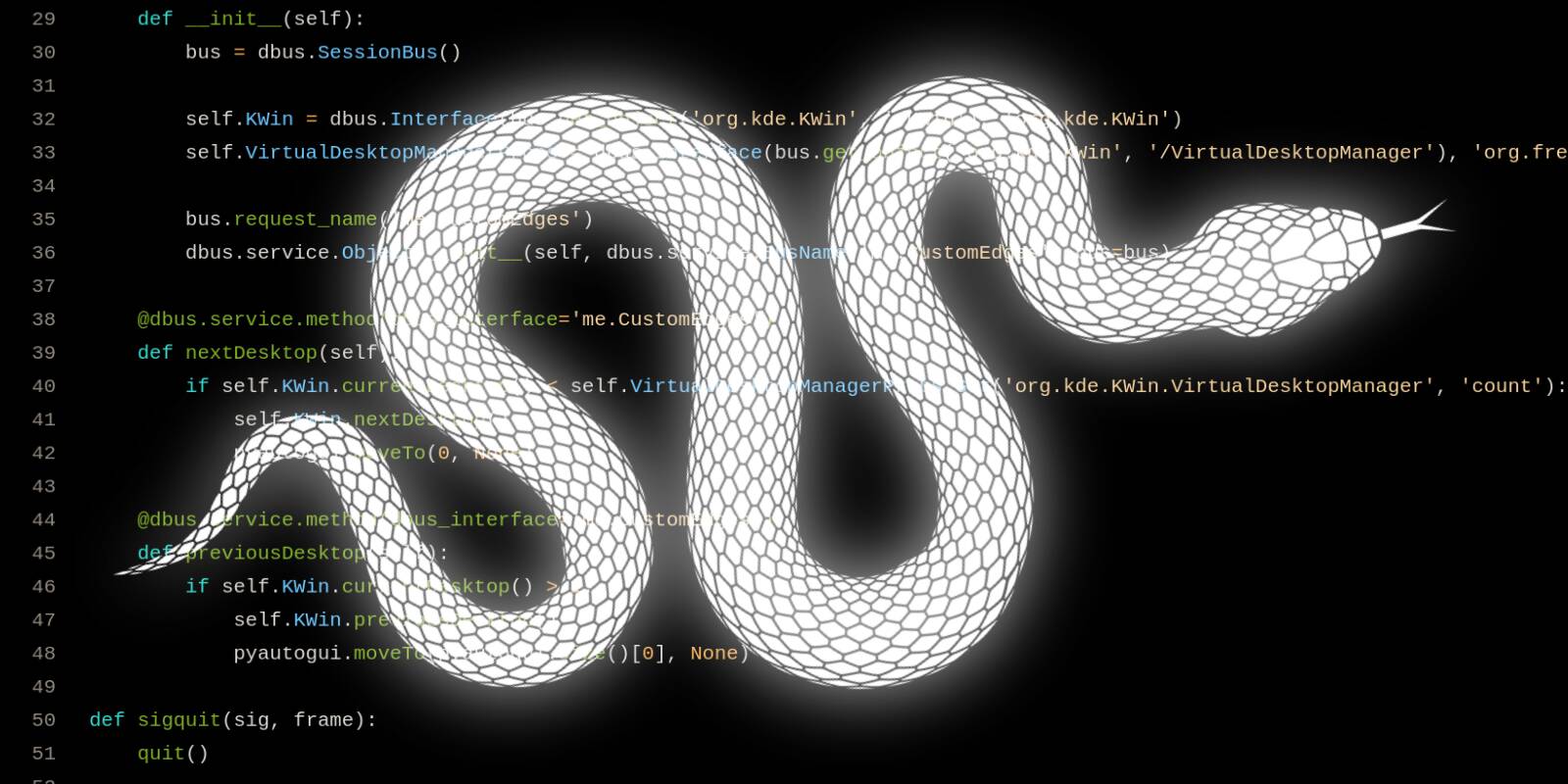Here’s another perspective on this situation.
Personally, from what I’ve read, this stinks of a group of people trying to bully the developer out of Python using the rules as their weapons. It’s a cowardly tactic.
Imagine working 20 years on something only to get bullied out for some irrelevant disagreement…
100%.
CoC’s are used as Soviet era purity commissars to either push a agenda unrelated to the mission of the organization or to be a hammer to punish those who don’t toe the line. The fact that this committee is secret makes the problems double
The fact this CoC ban happened because of feedback to a bylaw change tells me this is punish someone for objecting to a fait accompli
It’s ironic to me because from what I have seen in many technical online communities at least, places that have an established code of conduct seem to have an extremely difficult time dealing with opinions they happen to not like, which to me is the opposite of their own CoC terms such as tactful, respectful, safe and inclusive. Instead the opinions they don’t like are weaponized using the other negative terms they list such as anti-social, unhelpful, trolling, controversial etc. Basically I guess it’s all left up to interpretation by the mods as to how/if to handle those situations, which was already the case anyway.
People latch on whatever little power they can get via these social constructs.
Office politics comes to mind here too.
The trouble with this is where do you draw the line? What you say is totally true and makes sense sometimes. The question is when is it actually that situation? I can imagine two situations:
- one where the disliked opinion is “the Nazis were right”, and where the kicked person will probably argue back with
opposite of their own CoC terms such as tactful, respectful, safe and inclusive. Instead the opinions they don’t like are weaponized using the other negative terms they list such as anti-social, unhelpful, trolling, controversial etc.
as a way to try to legitimize their position, express their negative feelings at being excluded (because even if you’re a bad person, being excluded feels bad), and make the ban look to others like “oh, just a power-trip by bad management” and totally unjustified. Note that they might legitimately believe it is unjustified, that they probably are not twirling a mustache thinking in strategic terms of “how can I legitimize my position” and are just expressing their hurt feelings—but those are the things that happen when you make that argument.
- one where the disliked opinion is “I don’t like dogs”, which absolutely does not warrant a kick except maybe in a panel of judges of a dog competition or something, where the part I quoted is a good representation of the situation—people are being intolerant when they should not be, the kicked person’s grievance is legitimate, and there might be a case of just personal dislike or power-tripping affecting the decision. When they argue with
opposite of their own CoC terms such as tactful, respectful, safe and inclusive. Instead the opinions they don’t like are weaponized using the other negative terms they list such as anti-social, unhelpful, trolling, controversial etc.
it is actually probably valid.
There are some actions/opinions where the view on whether it is the former situation or the latter situation is… controversial/unclear. I always wonder what happens when it is that kind of situation and how to deal with it.
I see where you are coming from, but to me it comes off as a little bit naive and reductionist.
That being said, I am thinking of this more globally, not necessarily solely in context of open source development (let alone this case in particular).
Why? I agree with him. CoCs are either a short redundant statement of implicit decent behaviour (do you really need to write down that people should be respectful?) or long lists of ambiguous rules that are used to pretend mod decisions are less arbitrary than they really are. Pointless in both cases.
If he had really done all these terrible things then would they really have not suspended him just because they didn’t have a CoC?
I reckon you could put useful things in a CoC, like stuff about enforcement procedures, and in fact PSF does have that… but then they go and:
the Python community Code of Conduct team may take any action they deem appropriate
And the list of inappropriate behaviour is so extensive (“Excessive swearing”?) that they basically have unchecked power anyway.
I wouldn’t be surprised if having an explicit CoC enforcement team is also likely to attract just the kind of people you don’t really want.
I just find the notion that all CoC policies are useless in all cases to be a bit broad and almost parochial.
There can be cases in a multi-cultural collective where a CoC helps everyone get on the same page.
A CoC can also act as a “policy of last resort” where you generally have a more laissez-faire approach, but you can refer to the CoC policy if someone repeatedly doesn’t get the message.
It all depends on the context of course, but staying that CoC policies are universally bad seems very simplistic.
"Dismissing unacceptable behavior of others as a ‘neurodivergent’ trait, which is problematic because it creates a stereotype that neurodivergent people are hard to interact with and need special treatment.
Neurodivergent people literally are challenged in interaction with other people and need special treatment. Creating the narrative that they don’t is not helping. What am I missing here?
What you are missing here is a guy diagnosing people online by their interactions with him and insulting them.
Valid
as a neurodivergent: beeing neurodivergent is not a permission or excuse to be an asshole
It actually kinda is. At least where I live, many neurodivergencies, like ADHD or autism, are recognized as disabilities that hinder you from integrating with your environment. Being unable to evaluate your own thoughts in a social context, or being unable to interpret social cues, can result in actions that make you appear like an asshole to people around you. It’s not the same for everyone
He’ll make his own python, with blackjack and hookers
They sound like a bunch of the same people who would be on an HOA board and try to foreclose on someone because their grass was 1/4" too long.
Tim:
““I can tell you for a fact that more than just a few PSF members are terrified by the possibility that the CoC WG [Code of Conduct Workgroup] will ruin their careers,” he wrote.”
CoC WG:
“How dare you. Racist. Filth. 3 month suspension.”
😂
Alrighty then.
The infamous CoC being used as a tool to enforce personal opinions of a group. No surprise there. CoCs aren’t evil in their intent, but there’s a middle ground between it being too limiting and too lax. Especially finding the procedure of enforcement is not easy. Shrouding it in secrecy and “because we say so” is decidedly not the way to go.
KDE code in the background.
Ironically, as a long term (former) member of the KDE community, they had one of the best and simplest codes of conduct, enforced it only once that I can remember, and maintained an incredibly respectful community (at least while I was involved). Other open source communities could learn from it.
Python has always been a welcoming community for me as well, although I was never a contributor. But that was before it got a steering committee and such. BDFL to community translation is always tough and comes with growing pains. I suspect CoC working groups and subsequent pushback such are the direct side effect here – “it’s not how it used to work!”
The biggest problem I have with this announcement is: where is the evidence? There are a lot of (quite serious and concerning) reasons given as to why the developer is being banned, but nowhere is there a link to emails or comments that back up these accusations. This makes it very difficult to decide who to believe.







